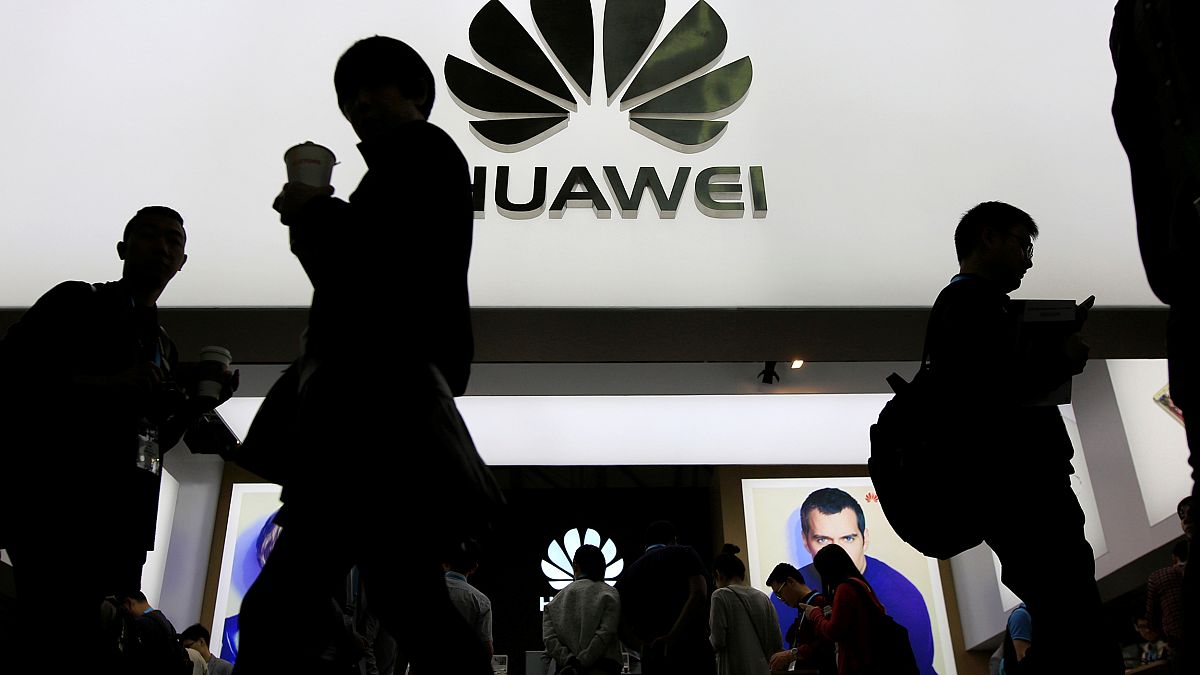Along with Huawei's success has come suspicion about the company's ties to China's government, its willingness to overlook U.S. sanctions and the security of its systems.
The arrest of a Chinese tech executive in Canada on Saturday was the most recent and public chapter of an ongoing battle between the U.S. government and one of the world's biggest tech companies: Huawei.
The arrest, which came on U.S. extradition charges, featured a heightened level of intrigue due to the profile of the person arrested: Meng Wanzhou, Huawei's chief financial officer and daughter of Huawei's secretive founder, Ren Zhengfei, who is one of the most powerful businessmen in China. The arrest came amid reports that Huawei had been sending U.S. technology to Iran in violation of U.S. sanctions against the country.
Huawei is not a household name in the U.S., but the company has emerged as one of the largest tech firms in the world in the past decade thanks to its success in producing telecommunications equipment including cell towers and equipment for next-generation 5G wireless networks. Huawei is also second in the global smartphone market, having surpassed Apple earlier in 2018.
But along with its success has come suspicion about the company's ties to China's government, its willingness to overlook U.S. sanctions and the security of its systems.
"Huawei is effectively an arm of the Chinese government, and it's more than capable of stealing information from U.S. officials by hacking its devices," Sen. Tom Cotton, R-Ark., said in Februarywhen he introduced legislation to block the U.S. governmentfrom buying telecom equipment from Huawei or ZTE, another Chinese hardware maker. President Donald Trump signed the the bill in August.
Ren, a former Chinese army engineer, started Huawei in 1987 and found initial success making telephone equipment. Huawei's expansion into telecommunications technology in the 1990s would fuel the company's international expansion — and put it on the radar of U.S. security experts. Meng has been seen as the successor to Huawei.
In 2017, Fortune magazine ranked Huaweias the seventh-biggest tech company in the world by revenue, with more than $89 billion. The company has more than 180,000 employees.
Despite its size and global reach, only 38 percent of Americans said they had heard of Huawei, according to the survey company Morning Consult. The company's name has also been something of a mystery for some in the West who wonder how to pronounce it. The company even made a humorous video for the U.K. about how to pronounce Huawei.
China's rise as a global power has coincided with the emergence of the internet as a major avenue for state-based cyber-espionage and cyber-warfare, making the origins and security of network hardware of the particle importance.
Huawei, which is based in Shenzhen, China, is now the largest telecom equipment maker in the world, but some countries outside the U.S. have moved to limit how much of its hardware ends up in its networks out of security concerns. In August, Australia banned Huawei from supplying equipment for new 5G mobile networks. In late November, New Zealand followed suit. Huawei was also reportedly excluded from talks with India on developing its 5G network.
While tension between China and the U.S. over trade and cyber-espionage is not particular to the Trump administration, relations between the two countries have grown more strained due to the president's willingness to implement tariffs — which are the subject of ongoing talks.
The rivalry between the U.S. and China has left many companies in the middle of a diplomatic tug-of-war, but few have become the subject of bipartisan critique like Huawei.
"Huawei is a Communist Party spy agency thinly vieled [sic] as a telecom company," Sen. Ted Cruz, R-Texas, tweeted on Thursday. "Its surveillance networks span the globe & its clients are rogue regimes such as Iran, Syria, North Korea & Cuba."
"There is ample evidence to suggest that no major Chinese company is independent of the Chinese government and Communist Party - and Huawei, which China's government and military tout as a 'national champion,' is no exception," said Sen. Mark Warner, D-Va., in a statement.
"It has been clear for some time that Huawei, like ZTE, poses a threat to our national security. Now we know that Huawei, like ZTE, has violated U.S. sanctions law," Warner continued. "It's my hope that the Trump Administration will hold Huawei fully accountable for breaking sanctions law, as it failed to do in the case of ZTE."
Cruz's comment about "rogue regimes" echoes variousreports that Meng's arrest was in connection to a Justice Department investigation that Huawei had violated U.S. sanctions on Iran.
And, as Warner noted, ZTE faced similar accusations under the Obama administration and eventually admitted guilt and paid an almost $900 million fine. Huawei has said it complies with all laws, regulations and sanctions.
The arrest of Meng, however, made far bigger headlines in the U.S. than any ZTE accusations or fines. The New York Times, Wall Street Journal and CNN each led their respective websites on Thursday with the news. (NBC News did so as well.)
And that coverage may pale in comparison to the reaction from China.
"It's hard to overstate the significance of her arrest in Beijing," Bloomberg's David Tweed and Peter Martin wrote.
